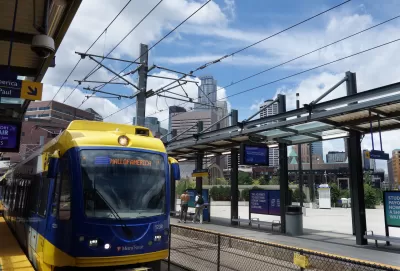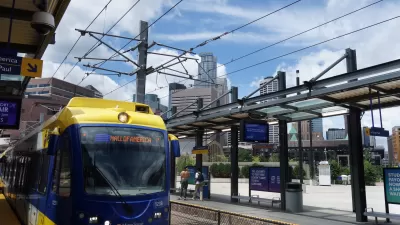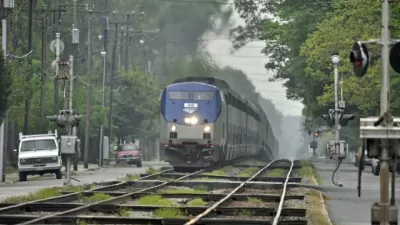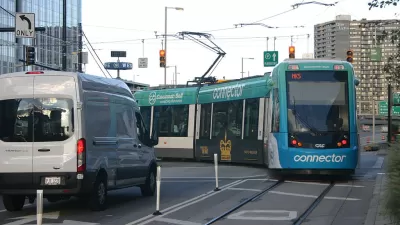The Minnesota State Legislature recently approved one of the most significant funding bills ever devoted to transit at the state level. The bill required rare political alignment and a new brand of advocacy.

The Minnesota State Legislature approved HF 2887 in May 2023, in effect adopting a transportation omnibus bill with $2 billion for public transit programs included in $9 billion total for transportation funds. Notably, the bill created several new funding sources, like a local sales tax, a gas tax indexed to inflation, a retail delivery fee, and a new sales tax on motor vehicles. Projects funded by the bill will include an intercity rail route between the Twin Cities and Duluth, an extension of the Blue Line light rail route between downtown Minneapolis and Brooklyn Park, and more.
The story of how the bill was approved provides a model advocates around the country, especially those operating in states with a Democratic trifecta in the governor’s office and the two houses of the legislature.
According to an article published by TransitCenter, the motivation for Minnesota legislators to approve the historic transportation bill came from not wanting to repeat a similar failure the last time Democrats held a trifecta—ten years ago. Further, the advocates quoted in the article from the Move MN, Sierra Club North Star Chapter, ISAIAH, and—all members of the Transportation Forward coalition—describe how HF 2887 was able to build support as a climate bill. Further aligning the stars for the coalition was the quick success of a 100 percent clean energy bill adopted in February and a ten-year effort to test transportation legislation and build to the historic moment.
More details of the advocacy coalition that achieved the success, and how it might provide a model for advocates in other states to achieve similar victories for transit and the climate.
FULL STORY: How Transit Advocates Scored a Major Victory in Minnesota

Alabama: Trump Terminates Settlements for Black Communities Harmed By Raw Sewage
Trump deemed the landmark civil rights agreement “illegal DEI and environmental justice policy.”

Study: Maui’s Plan to Convert Vacation Rentals to Long-Term Housing Could Cause Nearly $1 Billion Economic Loss
The plan would reduce visitor accommodation by 25% resulting in 1,900 jobs lost.

Planetizen Federal Action Tracker
A weekly monitor of how Trump’s orders and actions are impacting planners and planning in America.

Waymo Gets Permission to Map SF’s Market Street
If allowed to operate on the traffic-restricted street, Waymo’s autonomous taxis would have a leg up over ride-hailing competitors — and counter the city’s efforts to grow bike and pedestrian on the thoroughfare.

Parklet Symposium Highlights the Success of Shared Spaces
Parklets got a boost during the Covid-19 pandemic, when the concept was translated to outdoor dining programs that offered restaurants a lifeline during the shutdown.

Federal Homelessness Agency Places Entire Staff on Leave
The U.S. Interagency Council on Homelessness is the only federal agency dedicated to preventing and ending homelessness.
Urban Design for Planners 1: Software Tools
This six-course series explores essential urban design concepts using open source software and equips planners with the tools they need to participate fully in the urban design process.
Planning for Universal Design
Learn the tools for implementing Universal Design in planning regulations.
Caltrans
Smith Gee Studio
Institute for Housing and Urban Development Studies (IHS)
City of Grandview
Harvard GSD Executive Education
Toledo-Lucas County Plan Commissions
Salt Lake City
NYU Wagner Graduate School of Public Service





























